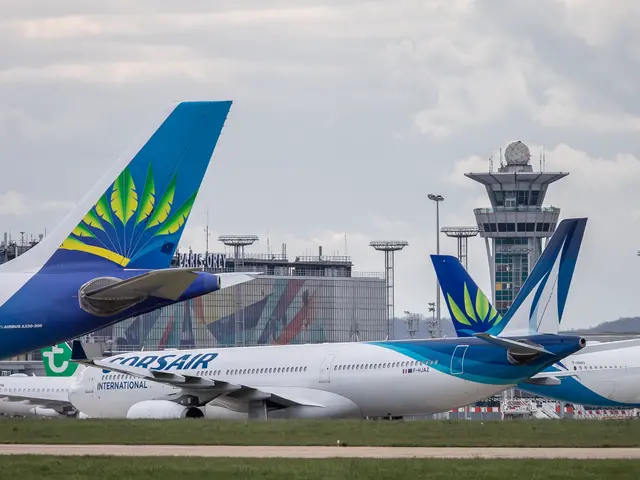The coronavirus pandemic has created unprecedented challenges for the aviation industry across Europe.
Due to a significant drop in passenger numbers and a cash flow crisis caused by lockdowns and travel restrictions, several airline operators have been forced to reduce flight schedules, ground airplanes and lay off workers, among others, to avoid a coronavirus collapse. And yet, some operators still have no choice but to file for bankruptcy or seek government assistance.
#### INDUSTRY "IN FREE FALL"
Before the outbreak of the pandemic, Germany's flag carrier Lufthansa served an average 350,000 passengers per day. Currently, the figure stands at less than 3,000. Since March, TAP Air Portugal has grounded 3,500 flights and closed 75 of its 90 international routes. Scandinavian Airlines was also forced to suspend most of its routes.
Faced with the pressure, some operators are unable to carry on. On March 5, British low-cost carrier Flybe announced that it was ceasing operations.
Calling March "a disastrous month" for aviation, Alexandre de Juniac, director general and chief executive officer of the International Air Transport Association (IATA), has said that "the industry is in free fall and we have not hit bottom."
Accordingly, airline operators across Europe have begun to cut costs, drastically reduce pay and layoff workers.
The International Airlines Group (IAG), owner of British Airways, released a financial report on May 7, showing that since late March the group's passenger capacity has decreased by 94 percent, most of its planes have been grounded, and the group lost 1.68 billion euros (1.82 billion U.S. dollars) in the first quarter of this year. The group will impose a "restructuring and redundancy program," which may involve the slashing of up to 12,000 jobs at British Airways.
Lufthansa had announced a loss of 1.2 billion euros in the first quarter, and projected further losses for the second quarter. The company is expected to cut 10,000 jobs.
Other airline operators face the same fate. Scandinavian Airlines (SAS) plans to reduce its workforce by about 5,000 people; Hungary's Wizz Airlines is forced to lay off 1,000 people, nearly one-fifth of its staff; and Latvia's flag carrier airBaltic has laid off nearly 700 people.
SEEKING GOV'T HELP
In dire straits, Europe's major airline operators are turning to their respective governments for help.
On May 7, Portuguese Prime Minister Antonio Costa said his government will help TAP Air Portugal on condition of gaining "more control" over its management. The French government recently provided seven billion euros in aid to Air France. Lufthansa and the German government are in talks on a financial aid package of nine billion euros.
The Danish government has said that, together with Swedish government, they would provide a government guarantee of three billion Swedish kroner (306 million U.S. dollars) to SAS.
As the coronavirus curve has begun to flatten in various parts of Europe, governments are gradually relaxing border controls and travel bans, and certain airline operators are also preparing to resume operations.
Czech Airlines and TAP Air Portugal have recently announced that they will resume selected international services after May 18. Lufthansa plans to resume more flights from June, but it is impossible to foresee when it will return to normal schedule.
Industry insiders generally agree that even when travel restrictions and lockdowns are lifted, the willingness of people to travel by air is expected to remain limited initially, in particular on international destinations.
Pandemic fear will suppress the demand for air travel for a long period of time. It may take two to three years or even longer for the European aviation industry to return to normal, they said.
(ASIA PACIFIC DAILY)
 简体中文
简体中文





